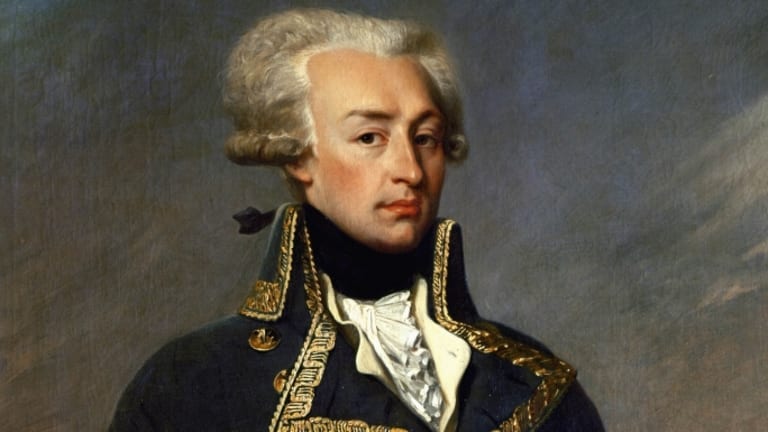Popularly known as Lafayette in America, Gilbert du Motier de La Fayette was a French aristocrat who commanded the American troops in the American Revolutionary War. He was born to French nobility in September 1757. Lafayette’s father was killed by the British in 1759, at the battle of Minden during the Seven Year’s War.
At the age of twelve, his mother and grandfather died leaving the very young Lafayette a large inheritance and the title of Marquis. He got commissioned at the age of 13 and married at 16 to the daughter of one of the most wealthy families in France.
Early aspirations
Lafayette wanted to avenge the British for his father’s death. At the age of 19, without any combat experience, he hired a boat and arrived in America. He was soon commissioned as a Major General. George Washington, upon acknowledging Lafayette’s power and French connection, took him under his wing, and they remained lifelong friends. In 1779, he also named his son Georges Washington de Lafayette in honor of the American revolutionary leader.
The American Hero in making
In September 1777, the British attacked New Jersey with a large army of troops to capture Philadelphia. This was the chance that Lafayette had been looking for. When the British army charged, Lafayette valiantly attacked with his troops. Lafayette was wounded on being hit by a bullet in the calf during the September 11, 1777 Battle of the Brandywine.
Lafayette fought as a part of the Continental Army alongside American colonists against the British in the American Revolution In December 1777, he camped with Washington and the army at Valley Forge. The injury during the war conferred him the status of a French hero who had served America.
The American Loyalty
In the middle of the war, Lafayette traveled to France to gain support for the American troops. By 1780, Major General Lafayette was given a senior position, commanding the American troops. With his noble French influence, he also served as the French Ambassador in the US. General Lafayette later returned to France where he started a revolution against the government. He played a pivotal role and was one of the most powerful men in France during the initial years of the French Revolution.
Inspired by the ideals of the American Revolution, the marquis penned the Declaration of the Rights of Man and the Citizen and it remains enshrined in France’s present-day constitution. In 1784, Maryland conferred honorary citizenship upon Lafayette, and other colonies followed suit. In 2002 when Lafayette became the sixth foreign national to be given honorary American citizenship by Congress.
During the French Revolution, Lafayette served 5 years of the prison where he bore inhuman treatment. The General was released in 1797, after letters of recommendations from George Washington and James Monroe. In 1824, Lafayette again visited America where he was felicitated by the government. On his trip to North Carolina, Lafayette was pleased to learn that many towns in the US had named themselves after him.
An ode, a Legacy
On May 20, 1834, Lafayette passed away after suffering from a long bout of pneumonia, with a medallion bearing a portrait of his wife Adrienne, pressed to his lips. Lafayette was “The Hero of the Two Worlds” who wanted to be buried on both American and French soil. So his son covered his coffin with dirt they had taken from Bunker Hill in 1825.



